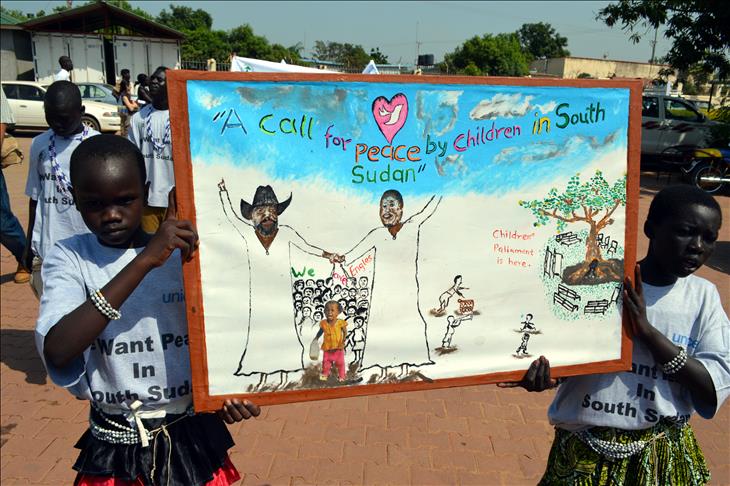
South Sudanese President Salva Kiir has vowed to promote girls' education in the world's newest country, UNESCO Director-General Irina Bokova said Tuesday.
"South Sudan is facing a strenuous task to overcome the challenges of illiteracy and girls' education. I am encouraged by the personal commitment of the President to make education a top priority," Bokova told a press conference in Juba.
"We need this leadership for education to enable the children and youth of South Sudan to build their own nation," added Bokova, flanked by Leila Zerrougui, special representative of the U.N. secretary-general for children and armed conflict, and UNESCO Special Envoy Forest Whitaker.
"One strong issue the President said was education, especially for the girl child," she said.
South Sudan has some of the lowest education levels in the world, with girls far less likely to enroll – and stay – in school than boys.
Financial and cultural barriers, as well as supply-side constraints, hinder educational opportunities for many of South Sudan's children.
According to national statistics, one in every five girls is married by the age of 15. Some are married as young as 12.
"This is the best investment the country can make, prevent early marriages, HIV and keeping girls in school," Bokova said.
-Peace-
The UNESCO director-general said the conflict in South Sudan had hurt the country.
"South Sudan is passing through a challenging time. We saw with our eyes: peace is the best way forward to eradicate poverty," Bokova said.
"We would not like to see South Sudan remain behind. The South Sudanese people have all rights to be part of the development of the world," she said. "Knowledge is the strongest safeguard against violence, against conflict."
Bokova went on to call for the development of teaching capacities in South Sudan.
"There is need to support teachers because this is very important for the development of education," she said, going on to assert that peace could only come about if young people were given a chance to develop.
"Sustainable peace can only come about if the children and youth of South Sudan are respected and have an opportunity to develop," Bokova said.
South Sudan slid into chaos late last year when President Salva Kiir accused a group of army leaders allied to Riek Machar, his sacked vice president, of attempting to overthrow his regime.
Hundreds of thousands of South Sudanese have since been displaced in subsequent fighting, while the conflict has led to a serious humanitarian crisis for large swathes of the population.
The warring rivals signed a peace deal in May following a January cessation-of-hostilities agreement. Neither deal, however, has succeeded in curtailing hostilities.
Bokova said that the South Sudanese president was committed to press freedom and the passage of a contentious media bill.
"The president has been very positive. He promised to look into this matter, which is very critical for the country," she said.
"We will continue monitoring," she added. "We know it is also very important for development of freedom of the press."
By Okech Francis
englishnews@aa.com.tr


